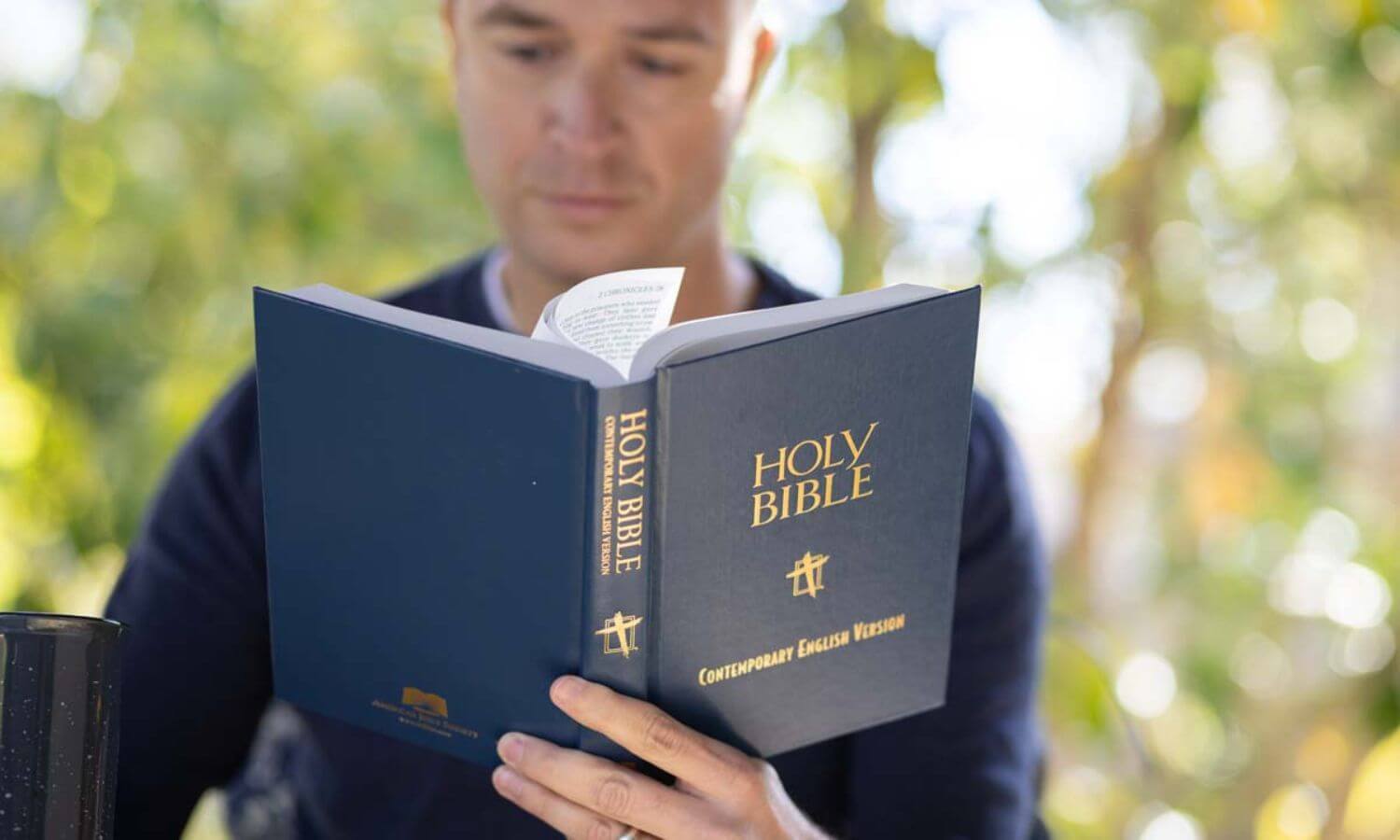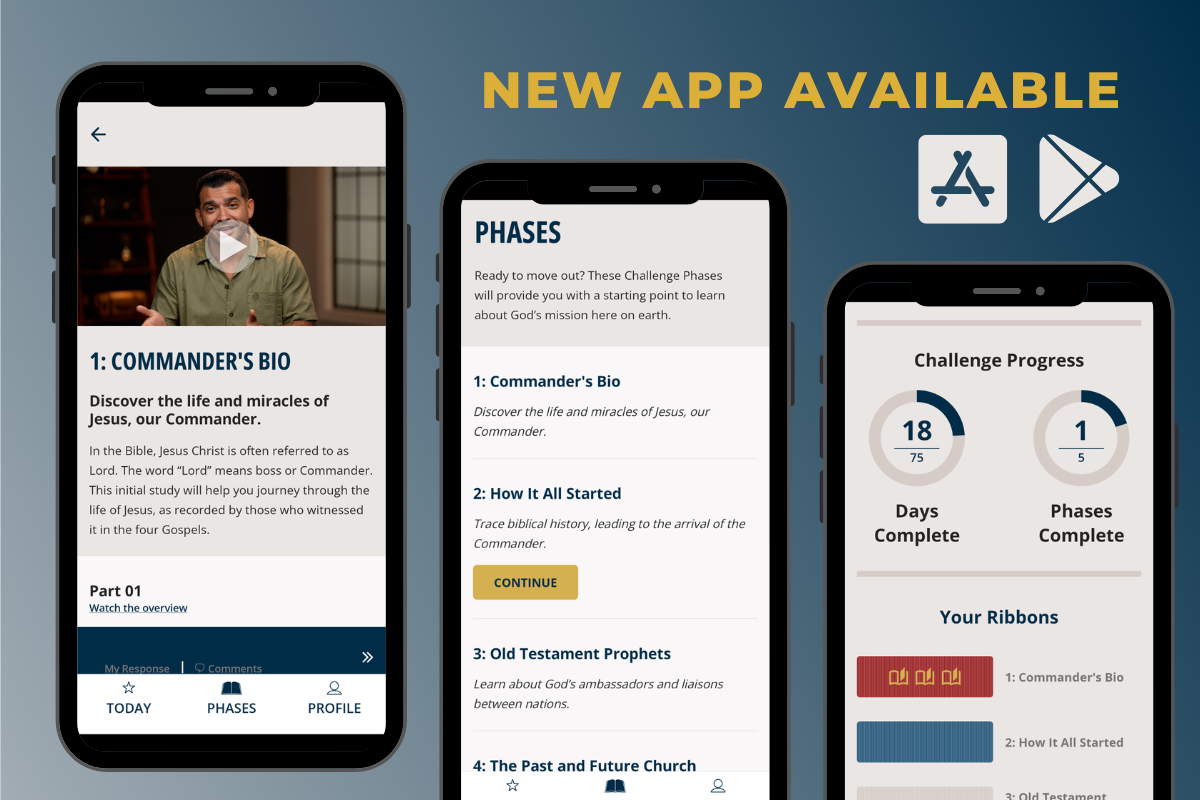Continuing with our interview series, we had the opportunity to interview Chaplain David Smith—a retired Colonel with the US Army. He did a total of four tours in the Middle East during his service—one in Iraq and the other three in Afghanistan. With the support of his wife of 42 years, he answered the call to serve as a Military Chaplain for three decades.
Paul opened up the interview by asking Chaplain Smith about his calling to join the Military:
“I just had this overwhelming sense of serving God in the church, and so I went and had a conversation with my pastor, and we had some prayer… when he prayed I felt this sense of peace. This is where God wanted me to go. It was all confirmed the night of my ordination when the bishop placed his hand on my head and confirmed me into ministry. I felt the Holy Spirit just overpower me with a sense of the call, and I knew then that it was an affirmation… I went to seminary and… served in the Reserve Unit as a Scout Platoon Leader. It was a phenomenal experience, but I was also serving at a church at the same time. After my ordination, I applied for a branch transfer to the Chaplain school and it was accepted. And so I served in the very same unit as a Scout Platoon Leader and as a Battalion Chaplain.”
Chaplain Smith never doubted his calling to serve the Lord in ministry and doors had been opened to him to serve God and country as a Military Chaplain. Neither he nor his wife realized how long God planned on having him follow that path:
“My spouse and I had a conversation about the Army Chaplaincy, and I told her, ‘You know, I really love the parish, but I really really love serving as a Battalion Chaplain in the Reserves. How about if we try three years on active duty?’ And so she said, ‘You know, let’s think about it, and let’s pray about it.’ So we did, and I contacted my endorsing agent and my bishop, and both of them gave their blessing. And so, in 1984 I came on active duty for three years, and during the course of the next 27 years—for a total of 30 years—God confirmed almost every year that I was where He wanted me to be through various experiences through people. I just knew that. God called me to be a Military Chaplain, and so the three years turned into 30 and when I retired it was because by law I had to—I didn’t want to—I still loved what I was doing but another door opened.”
What began as a prayerful leap of faith, became 30 years of service to the Lord and the Military!
Listen to the full interview here:
A 30-Year Journey: The Right Thing to Do is Rarely Easy
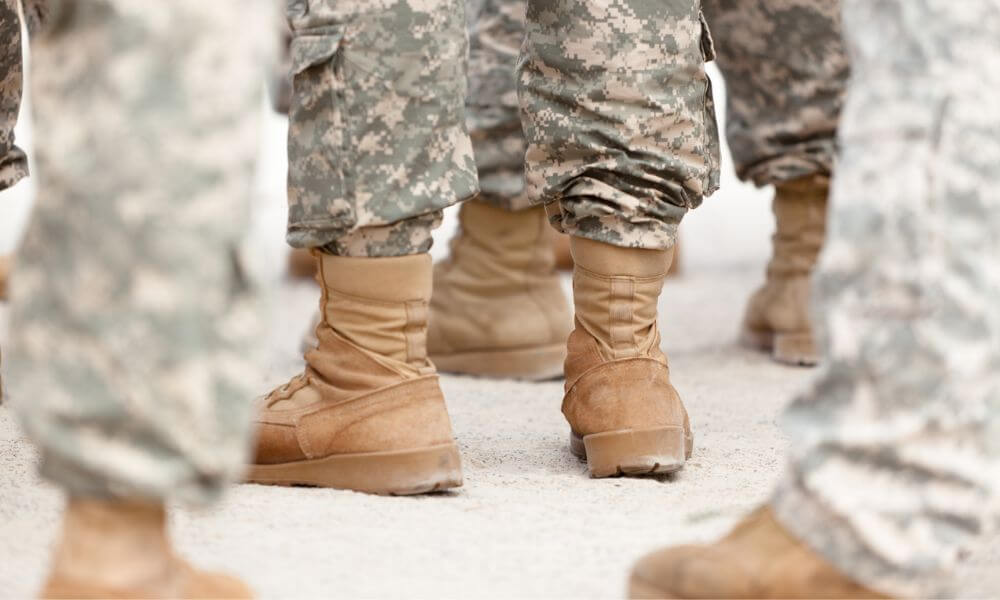
“Dad, is there anything else you can do?”
Even when we follow God’s will for us in our lives, we are never promised that things are going to be easy. Military service takes its toll on not only those who serve, but their families as well:
“I went to sign off on leave… I was being deployed in 11 days to Haiti… so literally we were only in the house for less than two weeks and I was being deployed to Haiti. When I came home, I will never forget my two sons. They were in elementary school and they said, ‘Dad, is there anything else you can do?’ It was a valid question. It was a hard question to hear and so I sat down, and I talked to them about what service to God and country meant, and I don’t know if it ever sank in with them. But I had that conversation with them and it’s interesting; now they thank me for the opportunities that they had because of my Army experience, where we lived and the people that we met, the friends they made. But it was not easy. We packed up numerous times so they were in school for a year, and then they were in a new school the next year. So it is a difficult life, but they’re great kids and are well-adjusted fine young men, and I’m blessed largely because of my wife.”
An innocent question out of the mouths of babes, so to speak. “Dad, is there anything else you can do?” The Chaplain’s Military service meant many tough choices had to be made, like where his son would graduate from high school and the fact that he had to miss out on his son’s senior year. Before that at age 13, his son was given the responsibility of being the “man of the house” while he was deployed. The sacrifices made by Military families are often overlooked:
“There are so many sacrifices that our Military families make that most Americans don’t understand or I don’t even think appreciate [it], but it also comes with the joys and the rewards and the experiences that they’ve had [his children] that a lot of other kids will never have.”
But Chaplain Smith was still obedient to God. With the loving support of his wife, his family pushed through the challenges and he was able to do the work that was set before him.
Chaplain Smith’s Path to His Specialization in Mental Health
Chaplain Smith’s deeper calling within his Chaplaincy stemmed from his own personal challenges through the realities of combat:
“So for myself, this [PTSD] became a realization, because when I came back from Iraq [in 2004], I knew I was changed. I knew I was affected and I didn’t know how to deal with it. I deployed three other times after that to Afghanistan with PTSD. And what is really interesting is that when you have a mission, your focus is on your mission and you have that meaning of purpose as if your focus is on the mission—and not on yourself. [After returning] I was out in the garage with my youngest son, and he did something, and I snapped at him. At that point, I realized, ‘Okay, Dave, you have an issue—it’s not only affecting you but it’s also affecting the family, and so therefore you need to seek help.’”
“When I came back from Iraq, I knew I was changed.”
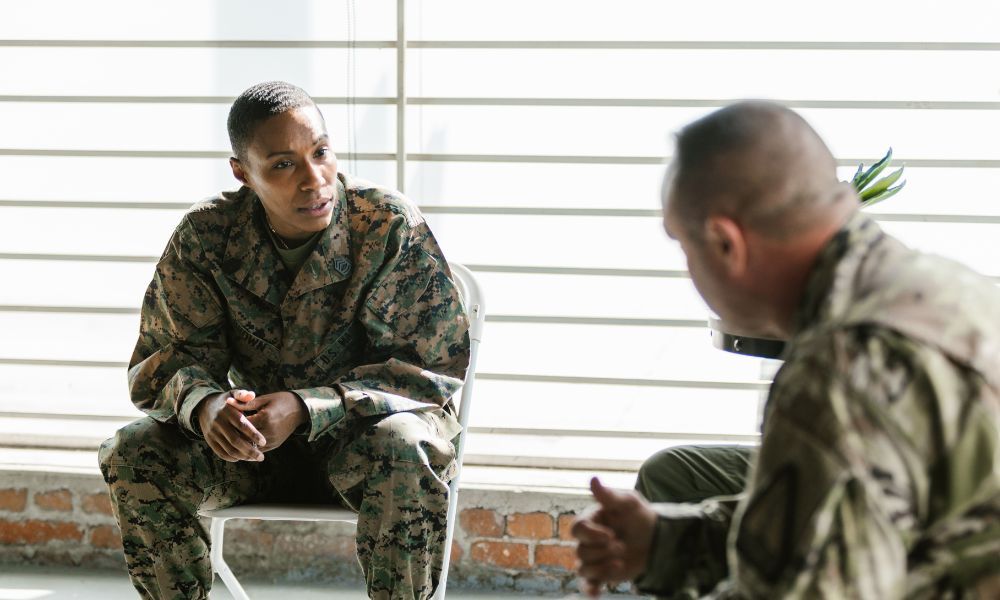
Understandably, Chaplain Smith’s realization was very difficult to accept and act upon as a Military Chaplain who seeks to help others, not himself. But, he still sought help.
“And here I am. I’m a Chaplain and I’m the one who, you know, am the spiritual anchor in the unit, and I’m struggling with this. So, I went to Fort Belvoir Behavioral Health and sought an appointment, and I was in therapy for a year. I was put into a new program called Pathways, which looked at some different therapies.”
These struggles led him to research why PTSD and other mental health issues affected Service members and how to get these Warriors the support they need.
Helping Chaplains Improve Mental Health Outcomes for Service Members
Continuing the conversation, Paul McCullough recalled earlier in his career being introduced to the three big indicators that a person may hurt themselves as a result of mental health issues: helplessness, hopelessness, and worthlessness. He asked Chaplain Smith what can be done to support Service members when they are feeling this way.
Chaplain Smith shared some great suggestions:
- Focus on Relationships: Investing in a Battle Buddy is going to be more successful than any programs that have been set up by the Military. Being able to share stories together and given the opportunity to diffuse before returning home to their families has proven invaluable. The faith community is also a vital part of this because they also focus on relationships—this includes sharing the Gospel and showing Service members how they can have a personal relationship with Jesus Christ.
- Train Medical Centers: Medical facilities need to be educated about specific issues that Veterans face. Training them so that they understand the Military culture will help them better relate to mental health issues that Service members are facing, because they are different from those of the general public.
- Encourage Service Members to Ask for Help: The Military trains its members to be resilient and ready which are important traits and tools to have in the environments they face. But if they may be dealing with PTSD or other mental health issues, they need to know it is okay to ask for help and how to ask for it. Particularly, before these conditions compromise their quality of life, the lives of their families, and their ability to participate and function within their family system.
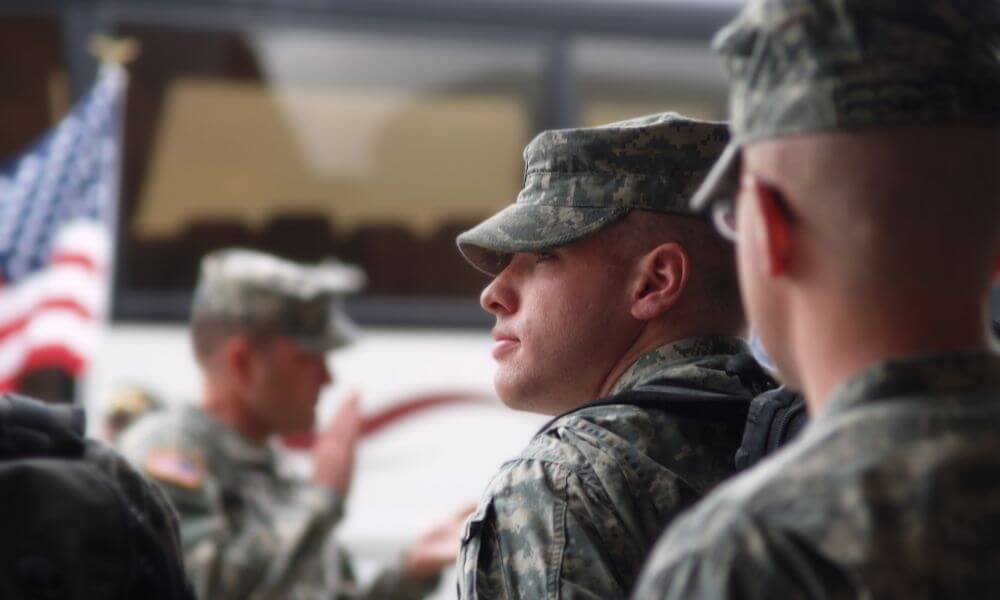
When Chaplain Smith was given the opportunity to apply these ideas, he noticed significant improvement with a particular brigade serving in Afghanistan. Upon their return home, there was not one suicide ideation and not one spousal abuse report. Relationships, proper training, and encouragement to ask for help. These proved to be winning combinations of support for high-risk Service members when they needed it most.
Armed Services Ministry is also committed to addressing challenges stemming from mental health issues.
Our Never Alone program focuses intently on Military trauma, and provides healing through interactive content, listening to Veteran’s stories, and journaling.
Check out Never Alone neveralonemilitary.org
God Understands is a program that addresses the many challenges of Military life, also including the stories of other Service members who have been in your boots and have come out the other side.
Check out God Understands godunderstandsmilitary.com
Final Thoughts on the Mental Health Needs in the Military
We’d like to thank Chaplain David Smith for his service and his commitment to the mental health of the Military community. His passion to serve those who serve doesn’t go unnoticed and it’s because of his godly, selfless service that lives are being changed (and saved). Through strong relationships, we are able to build each other up and offer hope to the hopeless.
“Iron sharpens iron, and one man sharpens another.” Proverbs 27:17 (ESV)

